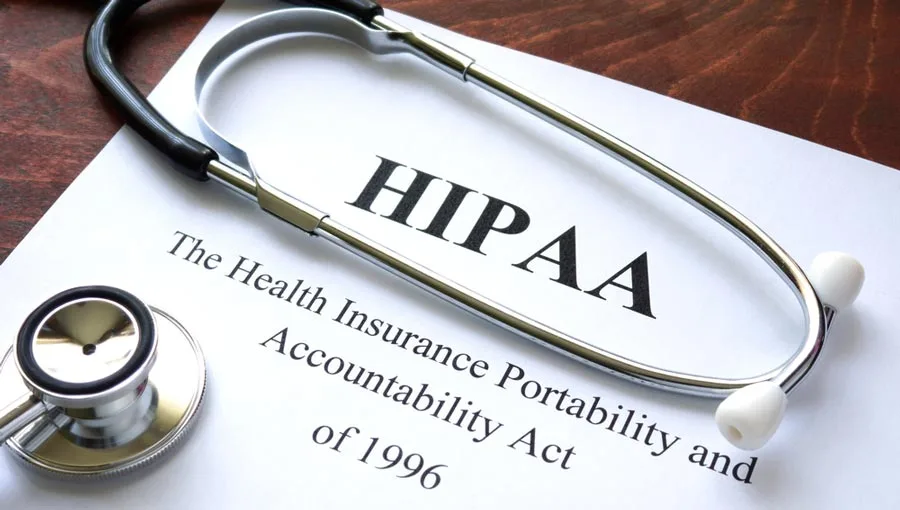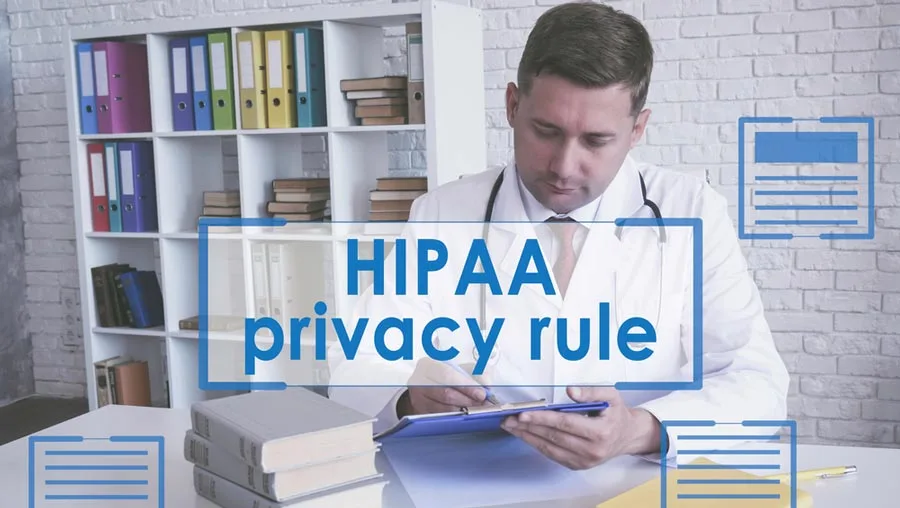Protecting Clients’ Privacy and Maintaining Compliance
The laws and regulations that outline compliance – specifically those of protected health information within the health care system – constantly loom for any addiction treatment facility. As overwhelming as these guidelines are for healthcare operations, they are specifically designed to enhance the client experience at treatment centers throughout the country.
If you are a facility owner or management team member, you have arrived at the right resources for understanding and better codifying your HIPAA Statement for rehab owners’ purposes.
This post is a guideline for owners and senior administrators involved with substance abuse treatment centers outlining the importance of adhering to federal law with regard to sensitive patient health information.
Keep reading to get our full resource, and reach out at any time to Ads Up Marketing for a confidential and complimentary audit of both your operational efficiency and digital promotions!
What Is HIPAA?
Anyone employed by an organization that deals with addiction treatment, health, and human services, or any other arm of the healthcare industry understands what dealing with a health oversight agency is like.
In fact, the specifics outlining protected health information and client privacy should be continuously drilled into the minds of the entire staff, and reinforced with regular training exercises and recertification.
However, when it comes to matters of federal law and the violation of privacy practices – you can never be too careful. HIPAA, otherwise known as the Health Insurance Portability & Accountability Act, is one of the single most important items for any current or prospective treatment centers.
Your full participation in complying with these civil rights laws is critical for the continued success of your organization.
When Did These Protected Health Information Laws Come Into Being?

Originally deployed in 1996, HIPAA was crafted to oversee the transmission of personal health information and create a set of regulations governing the behavior of healthcare workers with regard to client privacy.
HIPAA was essentially one phase in a multi-step campaign with the goal of modernizing the health insurance coverage system. One of the primary goals was shielding clients from various types of fraud including identity theft.
HIPAA regulations are broken down into two separate disciplines – the privacy and security rules. Both measures were enacted by federal officials but have different focal points regarding addiction treatment centers and client rights.
The HIPAA Statement for Rehab Owners: Privacy Practices
The HIPAA Privacy Rule outlines the rules regarding client rights regarding the shared information regarding a medical emergency, details about treatment, and other specific health care services with family members or other parties.
These rules established that certain third-party organizations were exempt from rules barring such a disclosure, including healthcare providers and insurance agencies.
Aside from restricting the flow of client physical and mental health information, the Privacy Rule limits how a treatment center may use specific client information. This passage also gives clients the right to request and obtain copies of their classified health information.
Finally, this portion of HIPAA makes it mandatory for any behavioral or mental health organization to disclose the rules and regulations to every client that’s treated.
Health Insurance Portability and HIPAA Security Measures
The HIPAA Security Rule is an add-on to the Privacy Rules that establish guidelines on how organizations must keep and maintain physical and mental health records. In addition, when a treatment center does disclose protected health information, certain measures must be taken to prevent accidental disclosure or modification of client records.
In the digital age, this means using specific types of EMR software and cybersecurity programs to encrypt and monitor all sensitive client information. Compliance is mandatory for all organizations whether it’s with regard to a request to disclose protected health information or the daily storage of client records.
Failure to adhere to these rules can result in serious implications, including monetary fines, negative publicity in the public forum, and even jail time.
Let’s focus on why HIPAA is vital to your clients, and what additional measures you should be taking to ensure you remain in compliance at all times.
Why Is HIPPA So Important for Your Clients?

You might be asking, “Why is strict confidentiality for medical records so important?” The most basic answer to this question is discretion. Many clients attending treatment for substance abuse want to stay out of the public eye. Information regarding potential substance abuse of any type could put their career in jeopardy and cast an image that the public might consider less than satisfactory.
In some cases, this protected health information regarding substance abuse extends to a particular family member. Ultimately, it’s at the client’s discretion regarding who they’re willing to allow you to share information with.
Privacy regarding addiction treatment aside, it’s not always the medical information that people are after. Cybercriminals use healthcare providers and other sources for medical records as potential targets.
Social security numbers, addresses, and other information are usually found within these documents, and any hacker or other white-collar criminal can easily use this information to obtain access to a client’s bank account, and credit card numbers, and steal their identities.
In the next section, we outline best practices regarding addiction treatment and steps you can take to avoid violations.
Protect Client Confidentiality and Your Reputation.
Make HIPAA Compliance a Cornerstone of Your Rehab.
Health Insurance Coverage Verification Procedures
If you own an addiction treatment center, chances are high that your website contains steps for clients to get insurance approval and information regarding other health-related benefits. Maybe there’s a phone number clients can call or a portal for them to fill out their information.
Regardless, you should be mindful of the following:
- Your website must have an SSL certificate for security measures
- When someone submits their information (Social Security Number, etc.) where does it populate? Where is it stored and who has access to it in the meantime?
In today’s behavioral health marketing world, many facilities use social media as part of their campaign strategy. If an oversight agency read your social media, would you still be considered compliant?
Be Mindful of Social Media Posting

Using social media to introduce your brand to the masses can be a powerful tool to leverage in the addiction treatment space. However, pick and choose your messages and posts carefully. Are you disclosing any sensitive client information in the photos or videos you post?
Is client privacy being violated? Double-check and have a designated editor check every post for approval before the final submission.
5 Reasons for the Importance of the HIPAA Statement for Rehab Facilities
The HIPAA statement is vital not only for client safety’s sake, but for the safety of all parties involved. On the surface, this seemingly uniform set of rules, albeit strict, doesn’t seem profound in the context of industry regulations.
However, these provisions have a significant impact on the addiction treatment industry as a whole – transcending the role of guidelines for medical personnel for law enforcement purposes. No less than the Substance Abuse and Mental Health Services Administration (SAMHSA) reiterates the importance of confidential communications in the treatment space.
Let’s break down the far-reaching implications of the HIPAA guidelines and why it’s vital that your organization upholds them to the fullest extent.
1) Creates Structure and Reinforces Integrity for the Industry

The HIPAA regulations create structure not only for your organization but for the addiction treatment industry as a whole. They are also required as a component of the accreditation process by such bodies as LegitScript, CARF, and the Joint Commission.
In a profession that’s been marred by controversy and remains constantly under public scrutiny, it creates a sturdy foundation for the addiction treatment space to operate under.
Currently, most organizations rely on sophisticated security programs to keep this information confidential. These programs are undoubtedly a powerful line of defense in the battle for client privacy.
What HIPAA accomplishes first, however, is the establishment of a capable human border of security that holds every member of the industry accountable.
With staff members everywhere acting as the initial line of defense against insidious attacks on client information, it builds a strong rapport and manifests public trust. It instills the idea that privacy protocol is just as important as preventative measures for physical health.
Following these guidelines ranks among important aspects like disease control and prescription monitoring.
2) Eliminates Shortcuts and Encourages Best Practices
Because adherence to HIPAA laws takes precedence over virtually any other step in the client and provider experience, it prevents employees from risking shortcuts to increase the speed at which information is shared.
By creating a meticulous set of steps that detail the exact procedures in which organizations must store and share records, an industry standard is set that all workers and owners are aware of from the start. This eliminates potential pressure for workers in the field to ignore these rules or take shortcuts
3) The Removal of Legal Liability
One of the most important reasons for sharing the HIPAA statement with all of your clients without fail is the removal of liability. Maintaining compliance creates a blanket of protection for your organizational staff and executives, and also removes the risk of liability from your employees.
When clients are given a copy and sign the HIPAA privacy statement, it places them in a binding contract that captures their signed declaration of their understanding of these rules. Imagine what could happen if the HIPAA regulations and statements didn’t exist.
Not only would your employees be at risk of legal action and civil litigation, but your entire organization would be at risk daily.
4) Promotes the Advancement of Technology
At this point in the industry, you’d be hard-pressed to find any organization that doesn’t consistently rely on technology to prop up their day-to-day operations. Because of the inherent risk of cyber-security threats posed constantly in the medical industry, new technology is constantly deployed, benefiting every facet of the addiction recovery space.
This steady influx of updated tech offerings creates a more efficient environment for your employees to operate under, in addition to enhancing the client experience by streamlining multiple processes and keeping security tight at all times.
5) Client Satisfaction

Finally, and perhaps most importantly, the HIPAA statements enhance client satisfaction and strengthen your relationship with the general public. On the backend, this potentially creates an uptick in client admissions, as more and more prospective clients feel more comfortable with taking the vital step of entering treatment.
When clients feel more secure within the confines of your facility, and avoid the stress that often accompanies the admissions process, this leads to a more enriching successful experience during the inpatient rehab program.
Get a Complimentary Consultation Today and Review Compliance!
Get a Complimentary Consultation Today!
Solving All of Your HIPAA Concerns and Educating Your Team
If you need assistance with your HIPAA statement process, including but not limited to employee training and certification, attaching the rules to your client paperwork, and ensuring your website and social media efforts aren’t risking a violation, our experts at Ads Up Marketing are your go-to source.
Our dedicated team has decades of combined experience dealing with the language contained in HIPAA and training facility owners in deploying a company-wide strategy that ensures you remain in full compliance.
Are you ready to start taking HIPAA and privacy compliance regulations seriously? Contact Ads Up Marketing today and we’ll help you ensure compliance in every aspect of your offerings!
Free Digital Marketing Analysis




